Search Results
Showing results 501 to 520 of 1061
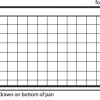
Dispersing Dispersion
Source Institutions
In this activity, learners investigate the movement caused by dispersion. Learners discover that dispersion is the random movement of objects.
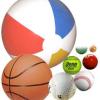
Size, Mass, Area, and Volume
Source Institutions
In this activity (page 23 of PDF), learners conduct an experiment to determine how the size and mass of a projectile affects the area and the volume of an impact crater.
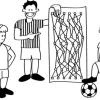
Cryptographic Protocols: The Peruvian Coin Flip
Source Institutions
This activity about cryptographic techniques illustrates how to accomplish a simple, but nevertheless seemingly impossible task—making a fair, random choice by flipping a coin between two people who d
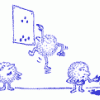
Look Mom, No Wings!
Source Institutions
In this activity about flight, learners explore how high they can jump. Learners dip their finger in ink or dirt, then jump as high as they can and mark paper attached to the wall.

Trail Impact Study
Source Institutions
In this outdoor activity, learners plan a simple foot path and create an environmental impact study of the natural area where the path would be.
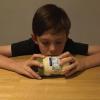
Unlocking the Secret in Product Codes
Source Institutions
In this activity, learners will explore how product barcodes are scanned accurately and be able to "guess" the last number in a 13 digit barcode correctly every time.
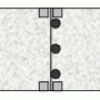
Invisible Investigations
Source Institutions
Using indirect observational methods, learners distinguish between charged and uncharged objects.
Building Houses: Build a Cardboard Tube House
Source Institutions
Build a house you can fit inside, using cardboard tubes.

Super Soaking Materials
Source Institutions
In this activity, learners will test cups full of potting soil, sand, and sphagnum moss to see which earth material is able to soak up the most water.
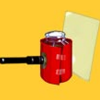
Turbidity
Source Institutions
This is an activity about turbidity, or the amount of sediment suspended in water.
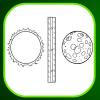
Size it Up
Source Institutions
Learners investigate why the Sun and Moon appear the same size in the sky even though the Sun is over 400 times larger in diameter.

Hot Stuff!: Investigation #3
Learners test two jars of ice water, one covered and one open, for changes in temperature. After placing the jars in the sun, learners discover that the covered jar cools down more slowly.
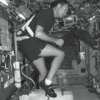
Challenge: Microgravity
Source Institutions
In this activity about the circulatory system and space travel (on page 38 of the PDF), learners use water balloons to simulate the effects of gravity and microgravity on fluid distribution in the bod

Dice Shapes
Source Institutions
In this activity, learners compete in a game to cover the most area by drawing randomly-generated rectangles on graph paper.
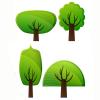
Give or Take?
Source Institutions
In this outdoor activity, learners work in pairs using their senses—especially touch—to learn more about individual trees.
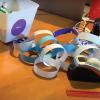
Paper Chain Testing
Source Institutions
Learners will do an experiment to determine which type of paper is strongest while focusing on variables and collecting data.
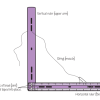
The Power of Togetherness
Source Institutions
In this activity about human anatomy (page 16 of PDF), learners construct a model arm and discover how muscles and bones work together to achieve efficient movement.
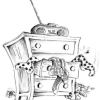
Four-Sock Drawers
Source Institutions
These puzzles use four colors of socks in a drawer to get learners thinking algebraically.
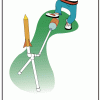
Pop! Rocket Launcher
Source Institutions
In this activity, learners construct a simple air pressure launcher for paper rockets.

Horton Senses Something Small
Source Institutions
In this story time program, young learners listen to the Dr.
